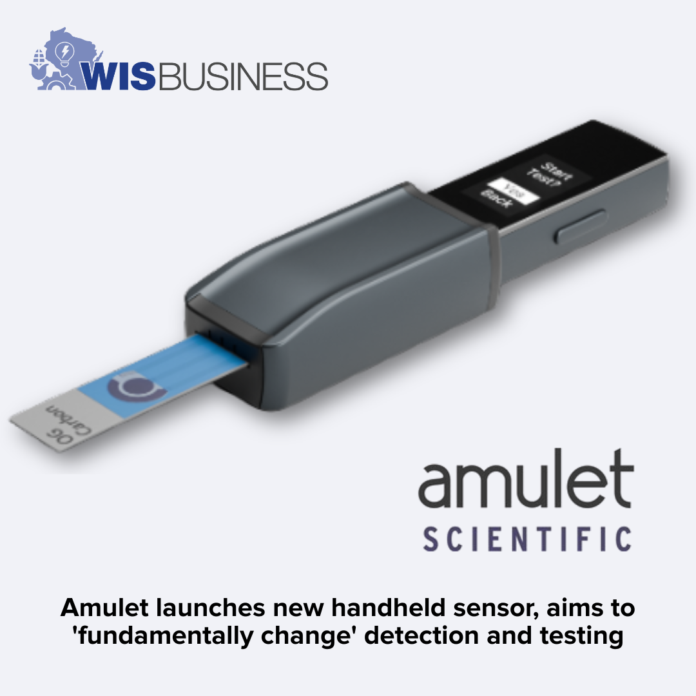A Madison startup called Amulet aims to enable better measurements in the field for both research and industry with its recently launched handheld electrochemical sensor.
Founder and CEO Abigail Barnes says the company eventually wants to “fundamentally change how detection and testing happen” across various sectors.
“Right now, we’re at an inflection point and are focused on solidifying Amulet’s role as the industry standard for portable detection technology,” she told WisBusiness.com. “In the short term, we’re scaling production and operations to meet demand for commercial Amulets while building on our existing and potential partnerships.”
The device is being touted as the world’s smallest battery-powered, handheld “potentiostat,” which can detect contaminants and other chemicals without needing a computer or scientific laboratory nearby. It only weighs 11 grams, and Barnes notes it has weathered extreme conditions when being used in the field.
Through a partnership between the company and Imperial College London, researchers used the Amulet during a 40-day rowing expedition in the Atlantic Ocean to study the effects of extreme physical stress on the body. Scientists used the device to test their hemoglobin levels during the voyage, in hopes of better understanding the process of hemolysis, when red blood cells rupture under such conditions.
“The Amulet lasted the entire trip (despite some iPhones not making it!), enabling important scientific measurements that would not have been possible with the incumbent technology,” Barnes said in an email.
The device can also be used for water quality and soil health analysis by environmental agencies and on-site safety testing in the food industry, she noted. The company previously received a USDA grant for detecting histamine in fish, one of the top causes for food poisoning.
Under the Amulet Scientific brand, the company is targeting researchers, industrial teams, food manufacturers and academic institutions as customers. While it can be sold to individual researchers and professionals, Barnes said “we’re interested in seeing how institutional sales can maximize our impact on improving safety and transparency” in food systems and environmental monitoring.
The business also includes the Allergy Amulet brand, reflecting its original focus on detecting allergens through a wearable device. That has since broadened as “we realized that the capability of our tech has evolved,” she explained.
“Our goal with both companies remains the same: to bring accessibility and transparency to critical measurements within food systems,” she said. “Launching the Amulet is the first step toward achieving that goal, and expands Amulet’s impact to wherever in-field detection is used to keep people and companies safe.”
Amulet last year raised $5.8 million in a Series A financing round, led by Madison venture capital firm HealthX Ventures. That brought it to about $6 million in total funding, and Barnes says the team is focused on executing the commercial launch while scaling up its operations and meeting “growing demand” for enhanced testing.
When asked if the company will be raising more capital going forward, she said “we’ll evaluate additional funding opportunities as we continue to grow and expand our product line.”







